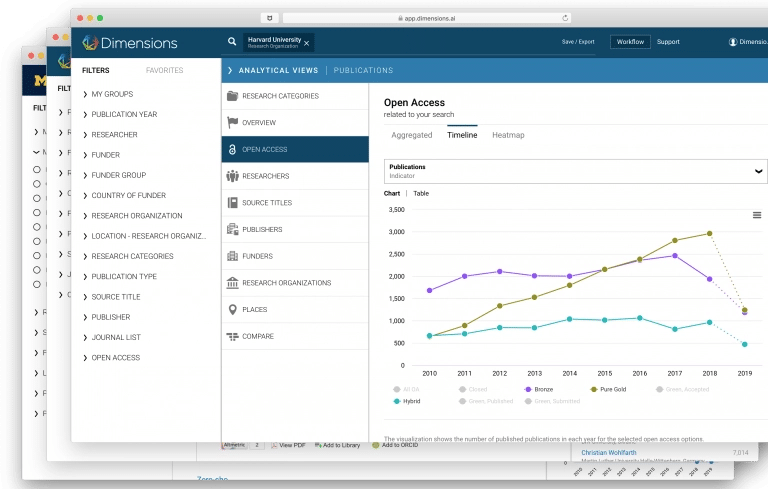Trusted by leading research organizations around the world




Find and interpret global research data
Dimensions connects the dots across the research ecosystem. With the largest collection of global research data, Dimensions delivers easy-to-understand visualizations, purpose-built applications and integrated AI tools that speed up interpretation.
With Dimensions, I don’t waste my time clicking through and switching between databases to find the answers to my questions.”
Key features
Connected research database
Access the most comprehensive collection of grants, patents, publications, and clinical trials, providing a complete picture of the research landscape.
AI and data visualizations
Leverage AI-driven insights and intuitive visual tools to simplify and accelerate data interpretation.
Customizable solutions
Integrate your own data securely and build tailored solutions to meet unique organizational needs.
Full-text search indexing
Extract insights beyond titles and abstracts, giving users more detailed and precise search results.

Actionable insights
Dimensions brings together unparalleled global research data, smart tools, and expert support to help researchers, funders, and R&D teams gain actionable insights with ease.
Faster discoveries
Identify new technologies, spot research opportunities and stay ahead of competitors. Access to the comprehensive Dimensions database allows organizations to identify patterns and make informed decisions for strategic future planning.
159M+
publications
7.9M+
grants
170M
patents
42M
datasets
938K
clinical trials
2.5M+
policy docs
25M+
researcher profiles
$2.7T+
in research funding data
Dimensions is becoming a popular resource across campus and earns high marks for its ease-of-use.”
Discover everything Dimensions has to offer

